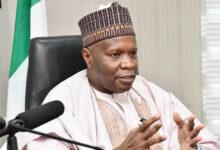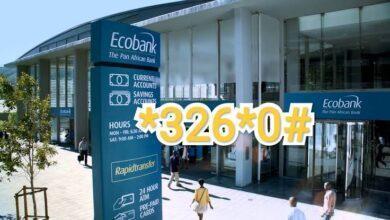
Top 6 Challenges Facing Banks in Nigeria
See the Challenges Facing Banks in Nigeria. Ever thought you had it going difficult? The frustration that accompanies the long and unending queues at the banks? The crowd?
Those cashiers that refuse to attend to you?All the struggle to use western union money transfer, the inexplicable nairas that keep leaving your account? We all have. But the indisputable fact remains that in as much as we face challenges, so do these banks.
👉 Relocate to Canada Today!
Live, Study and Work in Canada. No Payment is Required! Hurry Now click here to Apply >> Immigrate to CanadaNo matter the diversity of their services; business loans, checking accounts, savings account, debit and credit cards, merchant services, cash management, etc. Commercial banks, merchant banks, etc.

Challenges Facing Banks in Nigeria
The various challenges facing the Nigerian banks include but are not limited to;
1. Weak capital base
A few years ago, the Central Bank of Nigeria gave a directive to all Nigerian banks to raise their capital base from 1 billion naira to at least 25 billion naira by 31st December 2005.
As at then most banks did not even have sufficient money to meet the then 1 billion naira requirement. This saw the foreclosure of over 70 percent of Nigerian banks as out of 89 banks only 25 emerged solid banks and met the 25 billion naira requirement.
Some banks became mergers and so on. Ever had your rent increased by your landlord all of a sudden? That is exactly what these banks went through. With a weak capital base, most banks can scarcely grant loans and engage in international transactions
Read Also: Problems And Prospects Of Rural Banking In Nigeria
2. Ethics and professionalism
Ethics generally revolves around a set body of values, reformative guidelines and principles that embellish an individual with a sense of judgment and differentiation of right from wrong.
In recent times, the Central Bank of Nigeria has been intervening to investigate fraud, greed, insider abuse, etc. These were the succeeding results of unethical behavior from both bank staff and management.
👉 Relocate to Canada Today!
Live, Study and Work in Canada. No Payment is Required! Hurry Now click here to Apply >> Immigrate to CanadaUnethical behavior is responsible for distress in banks. And apparently, punishments for these unprofessional behaviors are trivial.
3. Poor corporate governance practices
In the banking industry, proper governance is vital for improvement of company performance, attraction of investors and numerous more. Whistle blowing and business ethics which can be encouraged through moral corporate governance, would undoubtedly lead to reduction in fraud in money deposit banks.
Unfortunately, a substantial number of Nigerian banks lack moral corporate governance practices. The new code of corporate governance for banks is sufficient to minimize bank distress. But do banks adhere to this?
Read Also: The Role of Microfinance Banks in Poverty Reduction in Nigeria
Over expansion, corruption of bank officials and improper risk management are the key causes behind the failure of banks. This is a major challenge faced by numerous banks in the Nigerian banking industry. Effective implementation of corporate governance would consequently result in proper functioning of banks.
4. Reliance on public sector funds
Most banks have abandoned the private sector in their chase for government funds. Heavy dependence on the public sector, crowds out the private sector from the economy.
Consequentially, the Central Bank of Nigeria released a policy on the increment of cash reserve requirement for public sector. With the implementation of this policy, most banks began to source for income in the private sector
5. Slow GDP growth
Banks encounter several threats from operating environment of which Nigeria sliding into recession is an inclusive factor. Low oil prices and also, the dwindling availability of foreign currency.
Read Also: The Role of the Banking Sector in Economic Growth of Nigeria
Banks face severely narrow foreign currency liquidity notwithstanding the authorities’ relentless efforts to regulate and perhaps normalize the foreign exchange interbank market and enhance the inflow of dollars.
Slower economic growth and lower risk appetite from banks will continue to translate into subdued credit growth and weak core earnings generation in the not too distant future. Nigeria had a dwindling economic growth since the end of 2015. The rate dropped to an estimated 3.0%. This in turn adversely affected the Nigerian banking industry.
6. Implementation of the TSA Treasury single account
The treasury single account is a financial policy used in several countries all over the world. Like other third world countries, it was introduced by the federal government of Nigeria in 2012 to consolidate all inflows from all agencies of government into a single account at the Central Bank of Nigeria.
This system establishes a unified structure as advised by the International Monetary fund where all government funds are collected in one account as this would reduce borrowing costs, extend credit and improve government’s fiscal policy, among other benefits.
Read Also: Problems And Prospects Of Microfinance Banks In Nigeria
The implementation of the treasury single account in Nigeria poses a problem for Nigerian banks as states and other government parastatals that would normally fix deposit huge sums of money at once, no longer can as this money has to be rendered to the federal government for payment into the nation’s general treasury single account. The banks would previously use this fixed deposited money to grant loans and engage in other financial transactions while generating interest for itself.
As the banks no longer have this source of capital at hand, their capital base drops and this poses a major challenge to the banks. Banks will no longer have access to floats provided by the accounts they maintained for the ministries, departments and agencies.
Deposit money banks are at a great loss from the implementation of treasury single account. This is due to the fact that public sector funds make up a large portion of commercial banks deposit.
Commercial banks held about 2.2 trillion naira public sector funds. As a result, banks will continue to device means of mobilizing funds from the private sector.
Read Also: Problems And Prospects Of Electronic Banking In Nigeria
Aside from all of this, other severe challenges that are faced by the Nigerian banks, with consequentially diverse effects are;
- Customers struggling to source for foreign currency imports
- Not making enough money
- Not meeting customer expectations
- Regulatory pressure
- Falling foreign exchange reserves and availability
- Fall in oil prices resulting in a consequential decrease in the amount of government revenues and thus reducing bank rates
- Implementation of the Full abolition of commission on turn over policy
- Banks are usually inaccessible in rural areas
- Arrest of bank managing directors by the Economic and Financial Corrupt Practices Commission
All these and more are the challenges that these banks encounter. So next time when you are on the unending ATM queue, remember that they also are facing their own end of the rope.
See: Top 20 Banks In Nigeria you Can Bank with Without Problems
Share this post if you like it.








